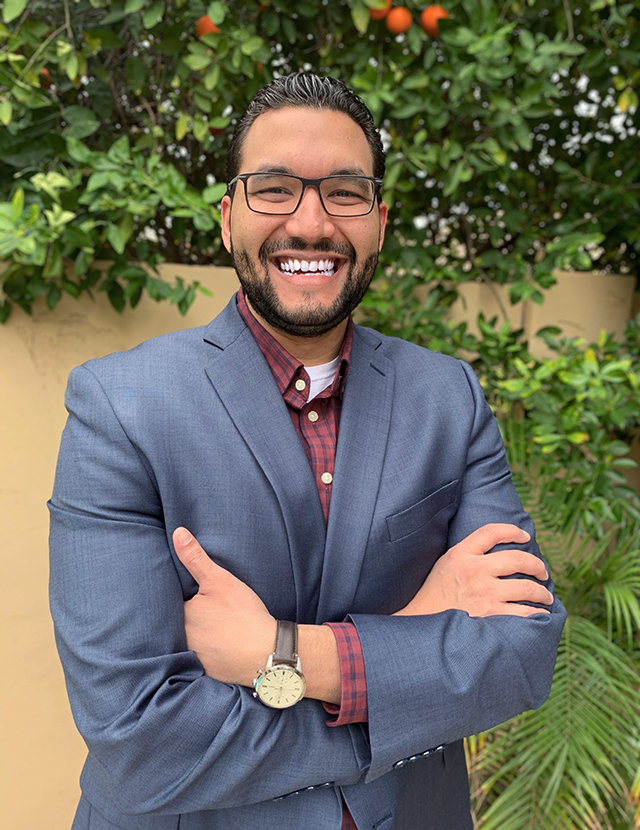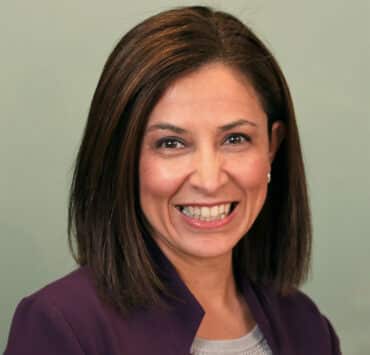|
Getting your Trinity Audio player ready...
|
Juan Taveras has a busy house. He and his wife Lauren have just launched a first of its kind DEI platform and are raising three daughters under seven. Aurelia is six, Salomé is three, and Lucero is just six months old. Then, there are Fiona, Fluffy, and Lulu—a terrier and two guinea pigs.
Taveras expects to field questions about the range of his HR and DEI experience and what inspired him and his wife to launch DEI Pro Finder, an online DEI resource and connection hub. The cofounder and chief connector recently sat with Hispanic Executive to talk about what it means to be an effective and outspoken leader.
HE: You’ve recently left your last company to launch your own project. Can you tell us more?
JT: Lauren and I are currently working on DEI Pro Finder (deiprofinder.com) an online resource and connection hub. DEI Pro Finder will house the largest public directory of DEI practitioners as well as curated tools and resources that leaders can use to develop a DEI strategy. In addition, we will be able to provide one-on-one support to businesses that need an additional level of guidance and direction.
HE: What inspired you to launch it?
JT: We noticed a need in our industry that no one was addressing so we took it upon ourselves to create a solution. We decided to create DEI Pro Finder after realizing how hard it is to get information about DEI practitioners. Since a directory like DEI Pro Finder did not exist, business leaders, like me, resort to Google and LinkedIn searches. Trying to connect with practitioners, learn more about them, and get information about their fees can feel like a wild goose chase. It is a difficult and time-consuming process. DEI Pro Finder takes the pain out of implementing a DEI strategy. Getting started is often the top barrier to this work, and it shouldn’t be because it is so important.

HE: As a seasoned DEI leader, what do you believe is the role of a DEI leader like those featured in DEI Pro Finder?
JT: To do it well, you must be willing and ready to raise concerns. Being outspoken in an effective way about DEI work isn’t about calling people out. We practice calling people in. If I see concerning behavior, I’m not here to point a finger, but instead I want to assume the best, ask questions, and genuinely engage. Being a DEI leader also means leading by example, you have to practice what you preach. That’s not to say I always get it right, but I do my best and am honest and transparent about the mistakes I make. It requires a level of vulnerability that can be uncomfortable. It is a life-long commitment to learning and growing.
HE: Let’s talk about your previous experience. I can only guess that working in the HR and DEI space at dynamic organizations like PetSmart Charities and NYC Outward Bound Schools must been meaningful and fun. What did you love about it?
JT: My favorite aspects of that work was that I had the opportunity to create welcoming and inclusive workplaces and to take care of people. I started my career in hospitality and found the nonprofit world about 12 years ago, but I have never forgotten the importance of the guest experience and customer service. A mindset that I bring to my HR and DEI practice. I have also enjoyed my varied roles in HR as it relates to building culture. At PetSmart Charities, for example, there was the fun of having four-legged co-workers in the office and chairing the Culture Crew, a group of staff volunteers that planned team building events. At NYC Outward Bound Schools, it was completing the ropes courses during field training or climbing the rock wall in the office.
HE: What attracted you to the nonprofit sector?
JT: I transitioned to the nonprofit sector because I’m drawn to mission-driven work where we are doing something together that is about more than the bottom line. Most recently at PetSmart Charities, I worked with great leaders including the organization’s president Aimee Gilbreath who brought a clear and innovative vision. Thanks to our donors, we got to spread love and joy by supporting organizations in the animal welfare space. Helping our partners to ensure pets in shelters find homes, or, helping a pet parent find their new best furry friends, or helping to ensure pets can remain with their families—it was all positive and exciting work. Working in the nonprofit sector is also a way for me to give back and pay it forward because, as an immigrant and first-generation college student, I benefited from the support and services of many nonprofit organizations.
“Being outspoken in an effective way (about DEI work) isn’t about calling people out. We practice calling people in.”
Juan Taveras
HE: What else from your upbringing or heritage influenced your career?
JT: I was born in the Dominican Republic and came to New York City in the 1980s. It defined who I am because I grew up in this big, diverse city full of life and culture. I was also totally parentified, meaning my immigrant parents relied on me to read letters in English and sign them up for food stamps and navigate other government benefits. I think that gave me a strong work ethic, a love of problem solving and helping people, and a passion for using my talents to make life and systems better.
HE: And that seems to make you a natural fit for the nonprofit space.
JT: Right. It is typical for people in the nonprofit sector to wear many hats. You can be developing budgets one day and fixing a printer the next. It’s an all hands-on-deck work environment to which my skill set lends nicely.
HE: What do you believe is necessary to create healthy and productive work cultures?
JT: Having organizational values that everyone, including leadership, is expected to uphold as well as a clearly defined vision and direction that strategy and goals can flow from. Prioritizing diversity, equity, and inclusion work is also important, especially as the workforce and the way we work continues to evolve. The most successful organizations understand the direct correlation between diverse teams and inclusive workplaces. People want to work where they feel valued, appreciated, and where they can be their authentic selves. Inclusive work environments foster creativity, innovation, and engagement which leads to more productivity and better results. Creating this requires intentionality and participation from everyone at all levels of the organization.
HE: Coming back to your heritage. How do you keep your Dominican culture alive with your daughters?
JT: Lauren and I are very proud of our Dominican culture and it’s important to us that our daughters know and appreciate their heritage. We speak Spanish at home, so our daughters are bilingual, and we read books from Latino authors. We listen to music at dinner, and we love to dance. During the holidays, we cook traditional Dominican food. I hope we can take the girls to see family in the DR soon.
HE: What’s next in 2023 and beyond?
JT: We are focused on growing DEI Pro Finder and expect to have a thriving marketplace that adds value to businesses and DEI practitioners alike. On the personal side, we will be celebrating our 10-year wedding anniversary in 2023 and we want to do something special and memorable. We also want to travel more as a family and explore other countries.

